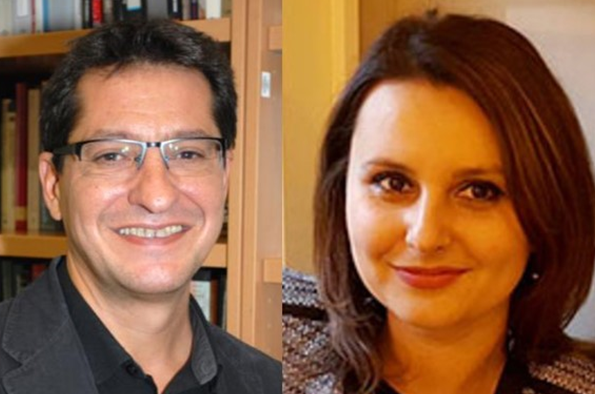
Diversity in Spanish Politics? Immigrant-Origin Candidates and Councillors and Dynamics of Descriptive Political Representation in Local Elections
Start time: 15:30 / End time: 17:00 / Date: 14 Jan 2021 Open to: Students in host dept/school/institute/centre / Staff in host dept/school/institute/centre / Students from same Faculty as host dept/school/institute/centre / Staff from same Faculty as host dept/school/institute/centre / Students within this Faculty / Staff within this Faculty / Any UOL students / Any UOL staff / Students from other HEIs / Staff from other HEIs/research institutions / Any potential undergraduate students / Any potential postgraduate students / Any potential international students / University of Liverpool Alumni / Business/industry / General Public Type: Webinar Cost: This is a free event. Contact: For more information contact Dr Luca Bernadi at Luca.Bernardi@liverpool.ac.uk Abstract: Migrants’ presence in elected institutions has attracted increasing academic interest over the last years. Past studies documented an alarming gap in migrants’ political representation across European democracies, while also showing that not all groups are equally (un)successful in gaining elected office. What accounts for such differences? Is a high demographic concentration enough for migrants to enter the parliamentary arena? Do other group characteristics (socio-economic status, migration profiles) affect the recruitment of candidates from certain communities? Finally, what role do political parties or the institutional rules regulating migrants’ access to citizenship and electoral rights still play on minorities’ representation outcomes? This paper examines migrants’ descriptive political representation in Spain, a country that has witnessed sustained migration inflows during the past decades. Drawing on an original dataset based on a survey with local party organizations across municipalities returning high shares of residents originating from Romania, Morocco, Latin America and EU14 countries, we show that Spanish local councils are far from adequately mirroring in their composition the diversity observed in the population. However, some migrant groups (especially Latin Americans and EU14 migrants) are more successful than others (Romanians or Moroccans) in accessing local politics. Bio: Daniela Vintila is the lead postdoctoral researcher of the ERC-funded project “Migration and Transnational Social Protection in (Post)Crisis Europe” at the Centre for Ethnic and Migration Studies (CEDEM) of the University of Liège. Prior to that, she was a member of the British team of the project “Pathways to Power: The Political Representation of Citizens of Immigrant Origin in Eight European Democracies” at the University of Leicester (UK). She holds a PhD in Political Science from Universidad Autónoma de Madrid (Spain). Daniela Vintila is chair of ECPR Standing Group Migration and Ethnicity, vice-chair of the IPSA Research Committee on European Unification, co-convenor of the IMISCOE Standing Committee Migration, Citizenship and Political Participation, and member of the Administrative Council of the Belgian Political Science Association (ABSP). Her interests lie in the areas of comparative politics, citizenship, EU studies, and migrant integration policies and practices. Bio: Santiago Pérez-Nievas is Lecturer in the Department of Political Science and International Relations at the Universidad Autónoma de Madrid (UAM) and doctor member of the Juan March Institute. He has been Visiting Scholar in the Political Science Department at the University of Birmingham and at the Wissenschaftszentrum Berlin für Sozialforschung (WZB) in Berlin. His research interests include political parties and electoral behaviour with a particular focus on multilevel contexts, and the electoral behaviour and political representation of immigrant-origin minorities. On these topics, he has published in collective books (Routledge, Palgrave Macmillan, Centro de Investigaciones Sociológicas, Armand Colin, among others) and journals (Revista de Estudios Políticos, Revista Española de Ciencia Política, Papers. Revista de Sociología). Currently he is the principal investigator of a project on the political representation of immigrants at the local level in Spain financed by the Spanish Ministry of Economy and Competitiveness. He was Head of the Department of Political Science and International Relations between March 2014 and April 2018. For further information or for receiving the Zoom meeting details please contact Dr Luca Bernardi (Luca.Bernardi@liverpool.ac.uk) When you click on "Add this event to my calendar" your browser will download an ics file. Microsoft Outlook: Download the file, then you may be able to click on "Save & Close" to save it to your calendar. If that doesn't work go into Outlook, click on the File tab, then on Open, then Import. Select "Import an iCalendar (.ic or vCalendar file (.vcs)" then click on Next. Find the .ics file and click on OK. Google Calendar: download the file, then go into your calendar. On the right where it says "Other calendars" click on the arrow icon and then click on Import calendar. Click on Browse and select the .ics file, then click on Import. Apple Calendar: download the file, then you can either drag it to Calendar or import the file by going to File > Import > Import and choosing the .ics file.About the event
What is Add this event to my calendar?